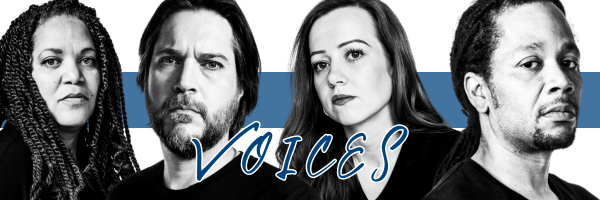
Discussions of whether or not to keep your son’s penis intact have been gaining increasing momentum. With the intactivist movement calling for a comprehensive understanding of the dangers and consequences of circumcision, what was once regarded as a customary minor medical procedure has become controversial, with passionate discussions about the physical, emotional, psychological, and ethical issues surrounding the practice. Intact America can provide a forum for you to learn about how to protect your son’s right to bodily autonomy and keep him intact and natural.
Medical Perspective on Circumcision
In recent years, the medical perspective on circumcision has undergone a remarkable transformation. Once touted for its purported health benefits, now debunked, challenges to the efficacy of circumcision have caused medical experts to offer a more nuanced view. The American Academy of Pediatrics, for example, no longer promotes this unnecessary surgery on infants as a given, handing over the responsibility of the decision to parents. However, there is still a lack of focus on the importance of carefully weighing the risks and ethical considerations of circumcision. It is essential to recognize the extreme dangers and complications that accompany any surgical procedure as opposed to buying into the social, cultural, and medical conditioning that has convinced the public that this elective surgery is essential.
Moreover, the impact of circumcision on sexual sensitivity and function later in life has become a focal point of contemporary discussions. As parents navigate this decision, it is crucial to understand the evolving medical landscape, which now emphasizes individual choice and comprehensive, informed consent. Since comprehensive information is not always available in your doctor’s office before birth and consent forms provided by hospitals vary in the information given to parents, it is essential to inform yourself. Intact America’s goal is to ensure that parents are empowered to make informed decisions for their sons while advocating for awareness and understanding within our society.
Psychological and Ethical Considerations of Circumcision
As individuals who were circumcised as infants grow older and become more aware of the procedure, they may grapple with complex emotions. The alteration of one’s body without personal consent can sometimes evoke feelings of violation, loss, or resentment. These emotional aspects highlight the need for parents to engage in open and empathetic discussions with their children about choices regarding their bodies. As Marilyn Milos pointed out in her memoir Please Don’t Cut the Baby! “What I learned from the men who shared their experiences with me was that every man who has a scar on his penis also has a scar on his psyche.”
The ethical debate surrounding circumcision centers on the concept of informed consent. Infants cannot provide informed consent for medical procedures, raising ethical concerns about performing circumcision on those unable to express their preferences. This ethical dilemma has sparked discussions about whether circumcision should be postponed until individuals can make informed decisions about their bodies, which gives parents and our society the right to make irreversible choices for children before they can fully comprehend the full spectrum of implications for their bodies. Thus, the ethical considerations surrounding circumcision emphasize the importance of respecting bodily autonomy and making decisions that prioritize an individual’s right to self-determination.
Caring for an Intact Penis
Caring for an intact penis is a straightforward and essential aspect of maintaining good genital health. Unlike circumcision, which may involve specific post-operative care, an intact penis requires no special maintenance during infancy or childhood. The primary rule for basic hygiene is to gently clean the external area of the penis, known as the glans, with warm water and mild soap during a child’s bath. There is no need to retract the foreskin forcefully, as it naturally separates from the glans over time. Forcing retraction can cause pain, injury, and potential scarring. As children mature, they can be taught to retract and clean under the foreskin themselves once it separates naturally, typically by adolescence. This simple hygiene routine helps prevent irritation and infection while maintaining the penis’s natural function.
It’s important to address common misconceptions and myths surrounding intact penises. One prevalent misconception is that an intact penis is inherently less hygienic than a circumcised one. In reality, proper hygiene for an intact penis is easy to achieve with regular washing, and there is no increased risk of infection or odor. Another myth is that circumcision is necessary to prevent certain medical conditions, like urinary tract infections. Medical organizations, however, stress that these risks are relatively low and can be mitigated with good hygiene practices. Understanding these misconceptions is crucial for parents and individuals alike to make an informed decision regarding the care of intact penises.
Legal and Human Rights Perspective on Circumcision
The legal status of circumcision varies significantly across countries. While some nations have stringent laws governing circumcision, others prioritize individual choice. In certain countries, circumcision is performed for medical or religious reasons, while in others, it is subject to specific circumstances or parental consent. As awareness grows about bodily autonomy and informed decision-making, many countries are moving towards stricter regulations on non-consensual circumcision. This shift reflects a deeper understanding of and respect for individual rights. Advocates are working tirelessly to raise awareness and promote informed choices regarding circumcision. The legal landscape surrounding circumcision is complex, and it is important to stay informed about the various cultural, medical, and legal aspects involved.
While some individuals have taken legal action against hospitals, healthcare providers, or individuals involved in circumcisions, the outcomes have been mixed. Here are a few notable cases:
- David J. Llewellyn v. Greater Baltimore Medical Center: In 2006, a Maryland man filed a lawsuit against the Greater Baltimore Medical Center and a doctor for circumcising him as a baby without his parents’ consent. The case alleged that the circumcision was performed negligently, and the plaintiff sought damages. The lawsuit was initially dismissed, but the Maryland Court of Special Appeals later revived it. Ultimately, the case settled out of court in 2012, with the terms remaining confidential.
- Doctor Accused of Wrongful Circumcision in Florida: In 2018, a Florida family sued a doctor and his practice for performing a circumcision on their son without proper consent. The family alleged negligence and emotional distress. The case resulted in a confidential settlement.
- Maimonides Medical Center Circumcision Controversy: In 2013, a controversy arose at Maimonides Medical Center in New York when it was revealed that some infants had contracted herpes following circumcisions. The practice involved a specific form of Jewish ritual circumcision called metzitzah b’peh. This led to a public health debate and discussions about regulating the practice more closely, but it did not result in a legal case.
From a human rights standpoint, the circumcision of infants and children brings forth significant ethical considerations. Human rights organizations strongly emphasize the principle of bodily autonomy, asserting that individuals should have the right to decide about their bodies when they can give informed consent. This perspective calls into question the practice of circumcising infants who are unable to provide such consent and brings attention to the ethical concerns surrounding the procedure. While we value and respect cultural and religious traditions, it is important to strike a balance with an individual’s fundamental human rights, including the right to choose what happens to their own body.
Birth Plan Checklist (Specify “Do Not Circumcise”)
Medical professionals undoubtedly have a critical role in childbirth, but it is equally important for parents to actively engage in discussions about circumcision and assert their preferences directly. Relying solely on trust in healthcare providers can sometimes lead to misunderstandings or assumptions. Open and respectful communication is the key to ensuring that the medical team acknowledges the parents’ decision not to circumcise their child. This dialogue also presents an opportunity to address any queries or concerns, fostering a collaborative and well-informed approach to care.
When crafting a birth plan, expecting parents have a unique opportunity to express their preferences and desires for their child’s birth and care. For those who opt not to proceed with circumcision, it is crucial to explicitly state “Do Not Circumcise” in the birth plan. This direct and unequivocal communication with healthcare providers ensures that the medical team fully documents and comprehends the decision. A meticulously structured birth plan empowers parents to be staunch advocates for their child’s rights and choices right from the moment of birth, underscoring their unwavering commitment to upholding the child’s bodily autonomy.
Key Authority Figures and Forces Pressuring Circumcision
Navigating the social and cultural pressures surrounding the decision of circumcision can pose a significant challenge for parents. In specific communities or cultural traditions, circumcision is profoundly ingrained and regarded as a rite of passage or cultural norm. These expectations can exert considerable pressure on parents to conform to established practices. However, parents must remember that their decisions must prioritize the well-being and autonomy of their child. It is perfectly acceptable for parents to make choices that align with their values, beliefs, and desire to keep their son intact, above all else.
Having effective strategies for engaging in conversations about the circumcision decision is crucial for maintaining open and respectful dialogue with family members, friends, and healthcare providers. Providing educational resources and credible information can help dispel misconceptions and foster informed discussions. Encouraging open communication with healthcare providers is also paramount, including giving them a copy of your birthing preferences, such as clearly stating that your son will remain intact. Ultimately, navigating social and cultural pressures requires balancing respecting tradition and making decisions that prioritize the child’s best interests.
Key authority figures and forces that may exert pressure or influence regarding circumcision include:
Medical Professionals:
- Pediatricians: Pediatricians often provide information about circumcision and may recommend it based on their medical expertise.
- Obstetricians: Obstetricians may discuss circumcision options with parents during pregnancy or childbirth.
Religious Leaders:
- Rabbis: In Jewish communities, rabbis play a central role in promoting and performing circumcision (bris or brit milah) on male infants as a religious covenant.
- Imams: In Islamic traditions, imams or religious leaders may advocate for male circumcision as a religious practice (sunnah).
Family and Cultural Expectations:
- Grandparents: Older generations within a family may strongly advocate for circumcision based on cultural or traditional beliefs.
- Cultural Norms: Communities with deep-rooted circumcision traditions may place significant cultural pressure on parents to conform.
Peer Influence:
- Friends and Relatives: Circumcision choices made by friends or relatives who have circumcised their sons can influence parental decisions.
Circumcision Misconceptions:
- Health Benefits Misconceptions: Parents may be influenced by misconceptions about circumcision, such as the belief that it reduces the risk of certain diseases or infections.
Medical Institutions:
- Hospital Policies: Some hospitals may have policies that present circumcision as a routine procedure, potentially influencing parental decisions.
Media and Information Sources:
- Internet and Social Media: Online sources and social media platforms can disseminate information and opinions about circumcision, impacting parents’ perceptions.
Protecting Your Son from Circumcision
To protect your son from such pressures, prioritize open and respectful communication. Engage in sincere conversations with your family, expressing your reasons for choosing not to opt for circumcision and seeking their understanding and support. Education plays a crucial role in this regard; provide them with reliable information about the pros and cons of circumcision, emphasizing your unwavering dedication to your child’s well-being and autonomy.
When faced with cultural or religious pressures, seek guidance from community leaders or members who share your perspective or advocate for individual choice. You can connect with like-minded individuals facing similar pressures by joining support groups or organizations championing bodily autonomy. Lastly, ensure that your healthcare provider is fully aware of your decision by explicitly stating it in your birth plan and discussing it during prenatal visits. Choose a provider who respects your choices and prioritizes informed consent, and be prepared to seek a second opinion if necessary. Ultimately, protecting your son from circumcision pressure requires the establishment of a robust support system, staying well-informed, and advocating for your child’s rights and choices.
Parenthood is a remarkable journey filled with choices that shape your child’s well-being and autonomy. When it comes to circumcision, it’s a deeply personal decision that requires thoughtful consideration. Remember that you can prioritize your child’s welfare despite cultural, medical, and societal pressures.
Seek knowledge, engage in open dialogue, and advocate for your child’s rights. The discourse around circumcision highlights the importance of individual choice, informed consent, and respecting bodily autonomy. By staying informed and standing up for your beliefs, you can protect your son and keep his body whole and his penis in its natural state.
To learn more and join the conversation for change, explore the resources provided by Intact America, an organization dedicated to protecting children’s rights to make decisions about their bodies.







No Comments